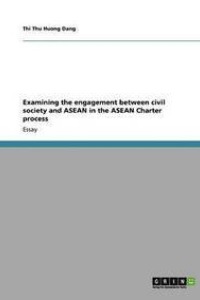
Liknande böcker
Guilt in Ian McEwan's Atonement and Joe Wright's film adaptation
Bok av Carmen Odimba
Seminar paper from the year 2009 in the subject Cultural Studies - Basics and Definitions, grade: 3,0, Johannes Gutenberg University Mainz (Department of British & Irish Studies / Translation Studies), course: Seminar: Transferring & Translating Media (Novels to Film): Ian McEwan's Atonement, language: English, abstract: "Atonement", the novel by Ian McEwan published in 2001, is qualified by many critics as a "wartime love story". It is an interpretation that suits the glamorous criteria needed by the public and provided by the media nowadays. This interpretation however solely focuses on the characters of Cecilia and Robbie and forgets the important part that Briony or her writing process play in the novel and Joe Wright's film.A complete reading of Atonement should include a study of the title and its implications in the story. We will start by analyzing the meaning of the word "atonement". The choice of this title has a special significance for the whole novel and should lead us readers and spectators to understand its message - to know whether the spirit of the novel has been respected by the film maker is a question to which we will also answer briefly. The tragic event that happened in Part One of the novel could never have taken place in a more opened social environment. With other codifications, more courage and less things left unsaid, the story would have been different. We will examine some of the taboos that played an important role in the shaping of Atonement's characters. The notion of guilt is very present in the novel, thus it will be, in relation to atonement, the central focus of this paper. We will consider the main characters, i.e. Briony, Robbie, Cecilia, Lola and Paul Marshall and try to evaluate the degree to which each one of them is guilty, feels guilty and is willing to atone for his sins. The last part of the paper will be essentially dedicated to the film, to Joe Wright's interpretation of the concepts we named above. Considering our paper's subject, was it a good or a bad adaptation?







